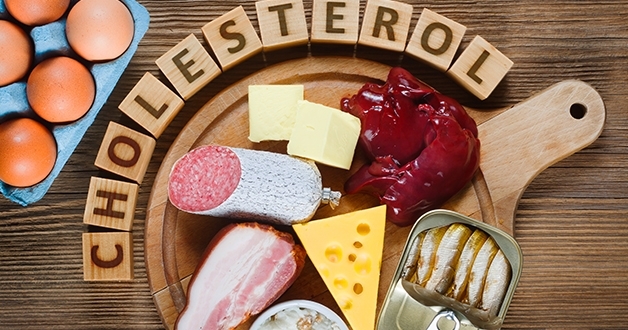
What is bad cholesterol?
0
1529
According to the same people, to keep LDL norm you do not have to eat animal fats that contain cholesterol. Nonsense!
Food cholesterol is proven to be innocent - there is no direct link between cholesterol from food and LDL because most of the "bad" cholesterol is synthesized in the liver. What do you think? Not from fat, but from carbohydrates, and in particular from large amounts of fructose, of refined carbohydrates. But how does the fatty myth arise and how 'bad' is actually LDL?
Several years after LDL was detected, scientists found that food fats (even healthy ones) led to increased levels in the blood. In the late 1970s, the relationship between LDL and cardiovascular disease (GAD) was detected.
Then the following cause-and-effect relationship is made:
1. Fat increases LDL
2. LDL increases the risk of cardiovascular disease
3. Consequently, high fat consumption is the cause of GCC
Iron logic, right! It leads to the creation of high carbohydrate and low-fat meals with the noble idea of reducing heart disease. The food industry begins to spew any low-fat foods, and there are screaming inscriptions such as "no fat" and "no cholesterol." As it turns out 30 years later - the road to hell is piled with good intentions because the percentage of heart patients is higher than ever.
But why? Because when a filling of foods such as fat is removed, it has to be replaced by another. And the fat-free food had a terrible taste. Ironically, the glucose-fructose syrup was then created. It is so cheap that it serves to fill and flavor almost anything.
read more
Still, do natural fat sources increase LDL levels?
I am surprised to tell you that fat increases the levels of LDL in the blood, but not the "bad" cholesterol. How come LDL is "bad" cholesterol? Not really. What scientists did not know at the time is that there are two types of LDL. One is called large and floating LDL (light and floating LDL). It is light and transported with blood without being inserted under the blood vessels and accumulates cholesterol plaques.
We can call it "good" LDL. The other LDL is called small and dense (LDL). It is the true "bad" cholesterol because it is dense and does not float, and at the same time it is small enough to hook between the cells and cause atherosclerotic changes.
Fat increases "good" LDL, while fructose, refined carbohydrates, and trans fats - "bad" LDL, the one you need to keep under control.
The problem is that the lipid profile measures both LDL together because they can not be distinguished. If you have had a blood test recently you may have noticed that there are not two types of LDL in it. Then if you have high LDL, how do you know this "good" or "bad" is? Very easy because the levels of both are related to triglyceride levels and HDL ("good" cholesterol). If LDL is high, but HDL is too high and triglycerides are low, there is no cause for concern.
This indicates that you have a high level of "good" LDL and are not at risk of heart disease. But if high LDL is combined with low HDL and elevated triglycerides, you need to take timely measures including sports, weight reduction and elimination of fructose, refined carbohydrates and trans fats from the menu.


